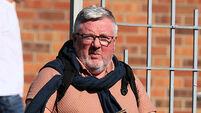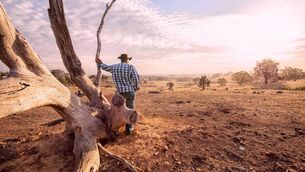Doing integration the right way benefits everyone

Lye Ogunsanya, a Nigerian former direct provision centre dweller and now CEO of Dídean which has developed a model of supported housing for asylum seekers. Picture: Moya Nolan
You don't expect migrants who have lived in the much-maligned direct provision system to want to give something back to Irish society but for Lye Ogunsanya opportunities came his way.
The 38-year-old father-of-two is the chief executive of Dídean — the Irish word for 'shelter' — which was established in 2019 to provide a community-based social care alternative for people who require housing support.













